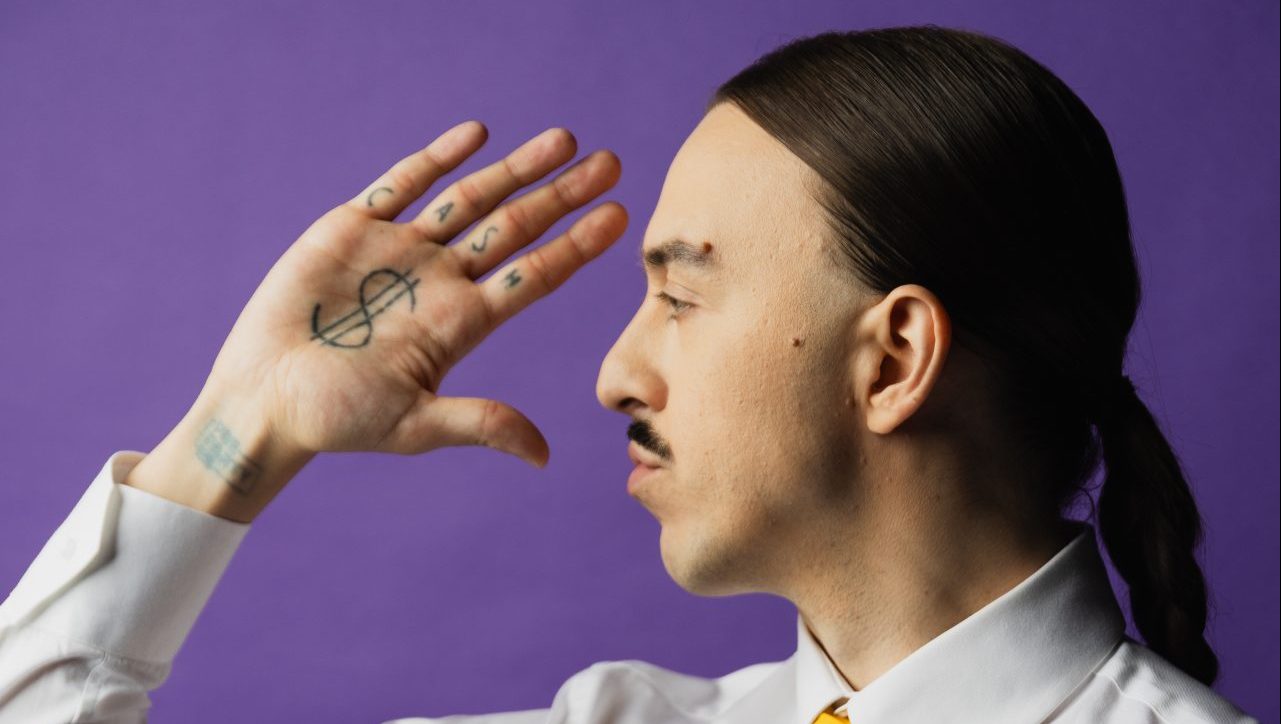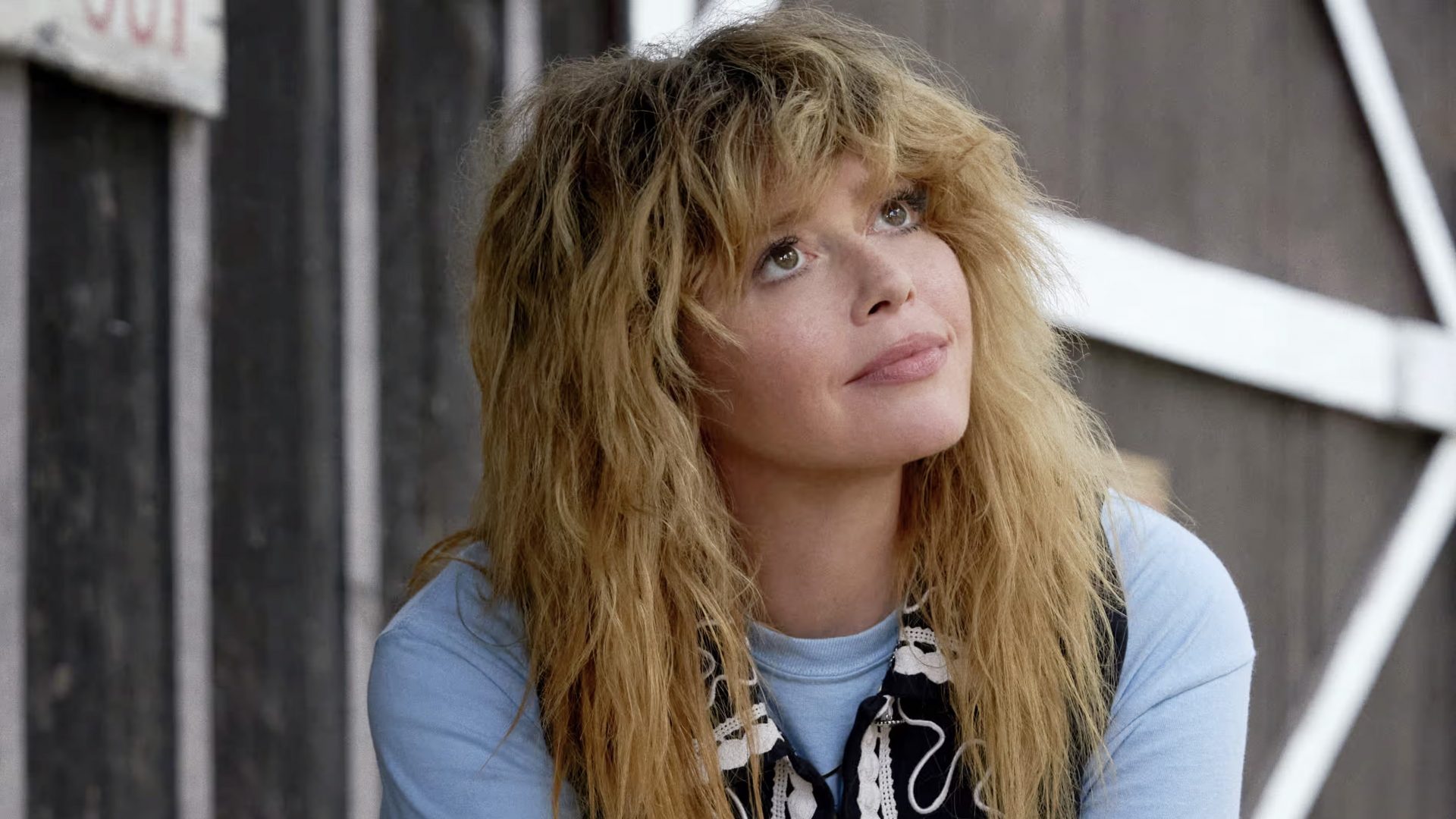However deranged the geopolitical order has become, most would not have bet on a diplomatic incident between Estonia and Italy this year. Yet Eurovision, which is taking place in Basel this week, and is after all an event built on the twin pillars of controversy and absurdity, is currently serving up just such a crisis.
Espresso Macchiato, this year’s Estonian entry, is one long play on Italian stereotypes. It references the mafia and pasta (“Life is like spaghetti, it’s hard until you make it”), and offers nonsensical, pidgin Italian lyrics as “Mi like mi coffè very importante”.
The performer is Tommy Cash (styled TOMM¥ €A$H), a musician and artist from Tallinn whose minimalist, hypnotic rap and eye-popping videos, as well as collaborations with Charli XCX back in 2017, have given him notoriety well beyond the Baltics. His song is the focus of the first Eurovision controversy out of the traps this year.
Protesting that the song “conveys a message of a population tied to organised crime”, an Italian consumer group has lodged a formal appeal with the organising European Broadcasting Union (EBU). Meanwhile, Gian Marco Centinaio, a senator from the far right Lega party, has sought to make nationalist political capital out of the issue, declaring on Instagram that “whoever insults Italy must stay out of Eurovision”. For Cash’s part, he has admitted no deep meaning behind the song, rather writing it purely “Because it’s funny.”
In fact, Espresso Macchiato is an extremely tame offering by Cash’s standards, and he is an artist who has consistently walked a narrow line between the groundbreaking and the offensive. Since the EBU has persistently grappled with reputational damage in recent years, it is remarkable that Cash is competing at all, particularly given his recent collaboration with the enfant terrible of last year’s contest, the Netherlands’ Joost Klein. Klein was disqualified after an alleged backstage altercation, and his song with Cash, United By Music, mocks the Eurovision motto and proclaims plainly “F**k the EBU”.
Cash’s own hinterland of controversy is vast, and while for some his surreal videos and absurdist performance art make him the Dalí of Estonian pop (he even has a signature moustache), to others he is an inveterate troll who uses idiotic humour, repulsion and perversion to gain traction online.
The video for Cash’s most recent single, UNTZ UNTZ – another jibe at a national stereotype, parodying German techno – is his most outrageous project to date. The concept, “the Sex Olympics”, is played out by a cast of adult film performers, and while the censored version now sits dangerously adjacent to his Eurovision effort on YouTube, the full, uncensored video is suitable only for Pornhub.
While Cash’s previous videos also sought to shock, they had the redeeming features of cleverly skewering the machismo and materialism of rap music, confronting the body fascism of pop, and representing the outsider. His breakthrough onto the Estonian charts, 2016’s Winaloto, may have found Cash slapping a line-up of women’s buttocks, but when he repeats the action in the next frame on a stretch mark-covered male beer belly, standard pop video visuals were very clearly being disrupted.
Pussy Money Weed (2018) was a puerile title for a single, but it also satirised rap culture cliches. The video, set in a visually stunning post-apocalyptic world, featured dancers with limb differences and using powerchairs. Whether this was a valid exercise in diverse representation or an exploitation of disability is up for discussion. Follow-up single Little Molly mirrored video artist Chris Cunningham’s work for Aphex Twin in the 1990s by superimposing Cash’s face on to the heads of sweetly dressed little girls to genuinely disturbing effect.
More controversy has come via a series of stunts at fashion shows in recent years. In 2023, Cash’s appearance at a Diesel show in Milan dressed as a stereotypical homeless person, pushing a shopping trolley full of junk, was condemned as tasteless (Cash claimed it was a “critique of poverty chic”). More amusing by far was Cash sitting in the front row at that year’s Paris Fashion Week wearing pyjamas, sandwiched between a mattress and duvet, and dozing as the models walked past.
Cash has said these performances are explicitly “anti-fashion”, but since he is a muse and collaborator of both Rick Owens and John Galliano, how much they truly puncture the fashion world’s pomposity and how much they simply serve its self-regarding avant-gardism is debatable. In his ambition to break into the art world proper, the credibility of Cash’s contributions are similarly questionable. An exhibition at Tallinn’s huge Kumu gallery in 2019 included the work 200 000 000 (Sperm by Tommy) – a canister of exactly that – and an oil painting of himself as a pregnant woman.
Cash’s real artistic contribution is found not in all this try-hard attention seeking, but rather in his exploration of who he really is. Born just three months after Estonian independence, Cash is a representative of a post-Soviet generation that experienced all the contradictions of that period as the former satellite states were pulled between east and west.
Brought up in Kopli, an isolated, crime-ridden district of Tallinn, Cash has branded this place of defunct shipyards and abandoned factories as “Boring as f**k”, but has added, “But this nothing-and-nowhere made me into something”.
On early single Leave Me Alone, Cash reflected on his youth in Kopli as one of these “Children of the New East”, dreaming of the glamorous west (“Stuck in this dump when I should be in Miami”, he rapped in his deliberately exaggerated “Slavic” accent).
In the video, he rode a horse bareback and sat in a tin bath of filthy water outside a tumbledown shack in a strikingly cinematic portrayal of the grey and freezing Estonian landscape.
Elsewhere, he has offered an ironic celebration of his culture, rapping on Winaloto: “Why have abs when you can have kebabs?” Two years later he had boiled down his spoofing of American rap and pop culture through a post-Soviet lens into a new pseudonym, “Kanye East”.
By adopting a look with elements of the gopnik working-class subculture of the former Soviet countries, roughly analogous to the concept of the “chav”, Cash tapped into an urban, sporty aesthetic already accepted as “cool”, but he would emphasise: “I’m one of the guys who’s really from this place, not just robbing somebody’s subculture. I’ll be post-Soviet ’til I die because those things are really my home.”
Yet in his representation of a very specific identity, Cash may, paradoxically, have come to represent something more universal, and he is certainly no purely Estonian national figure. On debut single Guez Whoz Bak (2013), he described himself as a “Scientific project, escaped from Kazakhstan”, and he has emphasised his mixed Ukrainian-Kazakh-Russian-Estonian ancestry (he has a Ukrainian mother and Russian father and Russian was spoken in the family home).
Cash’s gallerist, Olga Temnikova, could be expected to be hyperbolic about him, but there may be something in her statement on his work riffing on the Soviet Mickey Mouse, Cheburashka (recast by Cash as a mushroom cloud and renamed “Nukerashka”): “If you look at the situation in Ukraine today, the breakdown of communication, the linguistic and ethnic lines dividing the conflict, he transcends these worlds in a way that feels fresh and poignant.”
In fact, even Espresso Macchiato seems to be uniting as much as it is dividing. The song has broken the Italian charts and Cash made a good-natured appearance on big Friday night show Propaganda Live to assure the Italian population “I love everything about Italy”.
Cash is forging international links against the odds and, despite his unpalatable past escapades, he could even win the contest. His song was produced and co-written by KIRO, the man behind Käärijä’s Cha Cha Cha, the fan-favourite Finnish entry which narrowly lost out to Sweden in 2023, and the bookmakers currently have Cash in the top 10 of likely winners.
In the end, Espresso Macchiato is an earworm that many may be unable to resist, and Cash may prove that Eurovision slogan he so recently derided, “United by Music”, to be true.




